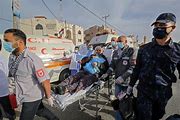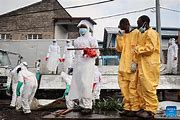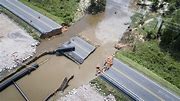On a bustling World Malaria Day, the scene outside a clinic in Mali painted a hopeful picture of progress. A line of mothers and infants snaked its way towards the vaccination room, where a new weapon against the deadly parasite was being deployed. This marked a significant milestone as Mali joined the ranks of African nations offering children protection against malaria.
The Ministry of Health’s introduction of the R21/Matrix-M malaria vaccine not only signifies Mali’s commitment to combating this disease but also sets it apart as the first country to adopt a unique “hybrid
” delivery strategy. Unlike traditional approaches, Mali’s plan involves a blend of age-based and seasonal dosing. Children between five and 36 months old will receive three monthly injections based on their age, followed by additional doses in May or June just before the peak malaria transmission season from July to December.
“
This timing is crucial as it aligns peak vaccine protection with the period when mosquitoes are most active, maximizing its effectiveness,” explained health officials. Local research has supported this approach, highlighting how seasonal administration can significantly enhance the impact of vaccination efforts.
The urgency behind these initiatives becomes clear when examining the staggering toll that malaria takes on Mali. With over 8 million cases reported in 2023 alone, accounting for 3.1% of global infections and contributing to over 14,000 deaths—2.4% of worldwide mortality—the need for effective prevention measures is undeniable.
Colonel Assa Badiallo Touré, Mali’s Minister of Health and Social Development, commended all involved parties for their dedication to this cause. She emphasized the importance of sustained collaboration among stakeholders to ensure the widespread success of these vaccination programs.
Partnerships play a vital role in driving these efforts forward. Gavi, the Vaccine Alliance, has been instrumental in funding procurement and early implementation activities while gradually transitioning financial responsibilities to Mali as its economy grows. Dr Sania Nishtar from Gavi stressed that reducing malaria’s impact requires unwavering commitment at both national and international levels.
UNICEF’s involvement underscores the significance of community engagement in promoting vaccine acceptance and comprehension among parents. Dr Pierre Ngom highlighted how digital tools would be utilized by young volunteers to educate families about integrating the new vaccine with existing preventive measures like insecticide-treated nets.
WHO echoed these sentiments by emphasizing past successes with vaccination programs in Ghana, Kenya, and Malawi that led to reduced child mortality rates—a testament to vaccines’ life-saving potential. Dr Patrick Kabore praised Mali’s adoption of R21/Matrix-M as a breakthrough moment in public health but underscored that comprehensive strategies including bed nets and treatment protocols remain essential components.
As Mali embarks on its phased rollout across select regions with nearly one million doses initially available, health officials aim not just to vaccinate but also to evaluate logistics and instill confidence among caregivers before expanding nationwide—an ambitious journey towards safeguarding children from one of humanity’s oldest foes: malaria.









Leave feedback about this